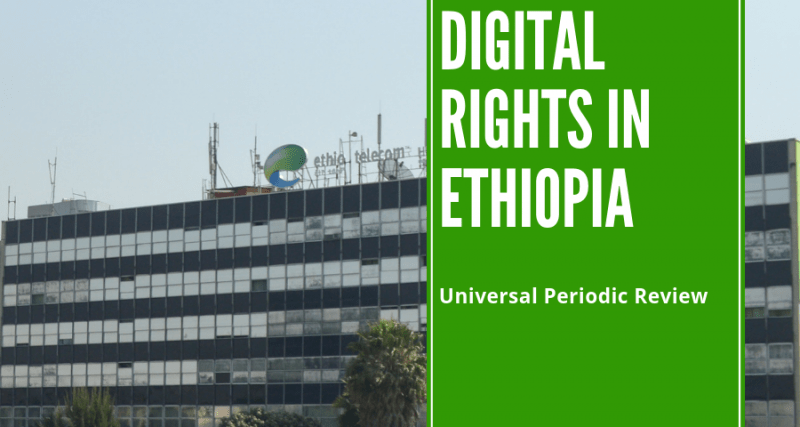By Ashnah Kalemera |
Despite the promises and efforts made by Ethiopia’s new Prime Minister, Abiy Ahmed Ali, to transform the country after years of political repression and state control of major forms of media, the country is yet to experience substantive change in the state of digital rights.
Restrictions to freedom of expression, privacy, and access to information remain in force including through legislation such as the 2008 Mass Media and Freedom of Information law, the 2009 Anti-Terrorism law, the Computer Crime law of 2016 and the Telecom Fraud Offences law (2012). While the establishment of the Advisory Law Reforms Committee, with a mandate to review existing laws to bring them in line with human rights standards, is a welcome development, pledges to reform problematic legislation are yet to be delivered.
Meanwhile, since November 2015, the Ethiopian government has consistently blocked and initiated national or regional shutdowns during public protest and exams, on grounds of national security. Whereas access to affected regions was restored during reforms in early 2018, there were reports of a shutdown in the eastern part of country in August 2018.
At its upcoming Universal Periodic Review (UPR) by the Human Rights Council scheduled for May 14, 2019, Ethiopia should be tasked to implement reforms that fundamentally promote and protect citizens’ rights both online and offline.
What is the UPR? It’s a full assessment of a country’s human rights. Every United Nations (UN) member state has its human rights record assessed, and all UN member states are involved in the review process. It happens every four-and-a-half years, for every state.
Such reforms should include the amendment of the 2008 Mass Media and Freedom of Information law, the 2009 Anti-Terrorism law, the Computer Crime law of 2016 and the 2012 Telecom Fraud Offences law to bring them in line with international human rights instruments on freedom of expression. Further, changes should be implemented to curb state surveillance of citizens, including by introducing independent judicial oversight over interception of communications.
In this UPR advocacy brief, the Collaboration on International ICT Policy in East and Southern Africa (CIPESA) and Small Media analyse the state of freedom of expression, freedom of information, the right to equal access and opportunity, as well as data protection and privacy developments in Ethiopia since the previous UPR review in April 2014. We make recommendations for consideration by UN member states at the upcoming review of Ethiopia.
See the full brief.

